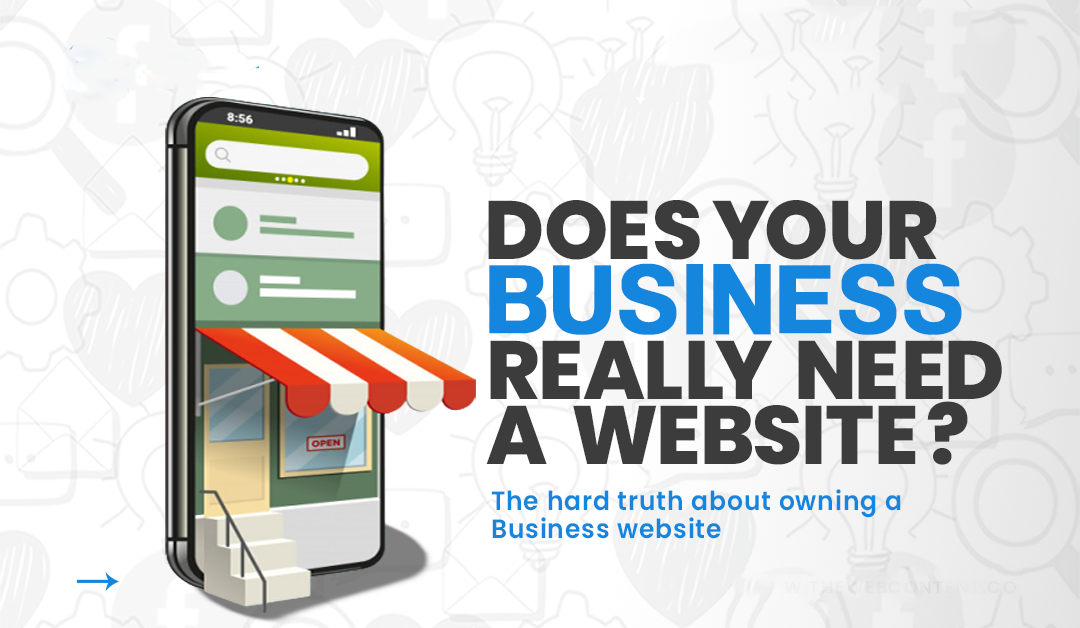Ever since August 6th, 1991 when Tim Berners-Lee created the first website till date, profit and non-profit organizations worldwide have established billions of individual websites for the purpose of expanding their various ventures.
According to Siteefy, there are about 1.13 billion websites worldwide. The number keeps growing by the second.
In another related news, Hubspot’s 2022 State of United States consumer trends reports that internet search ranks top in a list that includes visiting retail stores, TV ads, word of mouth, and online reviews, as the medium most used by customers to learn about products and services.
Though it wasn’t mentioned in the report, it’s simple logic to note that while discovering the products and services, these mediums at same time serve as platforms for customers to discover the businesses that sell those products and services.
Interestingly, a website provides the best option at placing your business at the top of internet search results, where your product and services can be discovered.
These stats may make you think that creating a website for your business would be a good idea.
It’s also possible that other articles you’ve read on this topic are nudging you on to get a business website.
The writers were perhaps trying to sell you their company’s web design products or services.
This article is different. It is a total deviation from the normal tips you’ve been fed in the past, and offers a practical insight to the topic.
Indeed, a website is an important asset for any business to have. It’s also not wrong for a business owner who desires growth for their business to consider acquiring one. But the question remains, does your business really need a website? What would be the benefits in your business owning a website?
These are ways to know.
The type of customers your business serve
The type of the customers your business serve is a major pointer to knowing if your business needs a website.
If your customers are found in the literate, tech savvy, and enlightened group of the society, having a business website is a necessity.
This is because the majority of customers found here are open to swift and less stressing means of satisfying their needs. Their major consideration is comfort, not price.
Businesses serving customers on the opposite side of the spectrum may need no website as most customers in that category would prefer to buy from a physical store, rather than an online store.
How your customers choose to transact business
Lack of trust, illiteracy, location and business type, make some customers (especially in third world countries) prefer physical transactions over website visits .
For this set of customers, business communication can happen through short message service (SMS), WhatsApp chats, WhatsApp video calls and normal phone calls.
But when it comes to making payments, they prefer to see both the goods and seller physically before they can agree to make payments. They refuse to be convinced otherwise.
Any attempt at directing them to a business website is viewed as an attempt to scam them of cash.
Understand your customers and the pattern they often choose to transact business with you.
“Listen” to their psyche and flow with their needs.
Customers’ demand for a website
Your business really needs a website when a good number of your customers are often demanding for one.
It can be through direct questions like:
- “Okay, can I see your website?”
- “Do you have an online store I can buy from?”
- “Do you have a website?”
- “Do you sell online?”
Or through less obvious ones like:
- “Where can I order your products?”
- “Can I see your product (or service) catalog?”
- “Can I see your portfolio?”
To be able to capture your customer demands, you should keep a record of your customers’ interactions with your business and analyze them from time to time so as to be able to structure your business in a way that accommodates their needs.
You stand to gain all when your business is able to satisfy your customers’ needs.
Ability to afford web rent
Every website relies on three basic web assets to function:
A domain name which is your business address on the internet. Example, www.thewebcontentcompany.com
A hosting account, which stores your website files on the internet so that customers looking up your website online can find it on the internet.
Website security kit, like the Secure Sockets Layer (SSL) certificate which provides security for your website against external threats that might want to steal user information from your website.
Building and maintaining a website is not a one-off activity. Apart from the fee you pay to a website developer to build a website for your business, you subsequently pay annual fees to the hosting company to retain your domain name, hosting account and site security tools.
When there is a default in payment, access to these web assets is withdrawn by the host company, and your website disappears from the internet.
For this reason, it is advised that you budget a two-year subscription plan for your business’ web assets from the onset. This ensures you have enough time to focus on generating business revenue and be able attain the financial muscle to retain your business’ web assets in subsequent years.
If you’re unable to shoulder the responsibility of annually renewing web assets, and that of the day to day activities involved in managing a business website, then there’s no need getting one.
Alignment with your business goals
Procuring a business website based on reasons other than strategic ones that position your business on a path to growth is wrong.
For this reason, it is important to be clear on whether a business website fits into the goals you intend to achieve in your business, both in the immediate and long term.
Some business goals that can be achieved using a business website include:
- Driving visibility and acquiring new leads,
- Building credibility and fostering customer trust,
- Building a loyal customer base,
- Reaching new territories and markets,
- Establishing a stress free customer experience
- Increasing sales
Get a business website only if it fits into your business goals.
Wrong Reasons for Owning a Business Website
Here are some of the wrong reasons that can drive you into acquiring a website for your business.
Utopian beliefs
Introduction of novel ideas to your business without consideration for customer behavior is a wrong approach to business innovations.
Businesses that experience real growth are businesses that rely on research and consumer data to reach and execute business decisions.
Ensure that every novel idea you plan to implement in your business, aligns with your customers’ needs before execution.
Assumptions should have no place in your business. Research and data should.
Following the trends
Doing business, there’s always temptation to adopt the norms other businesses that play in your niche use for your own business, but it’s important to note that no two businesses are the same.
Every business is unique in its drive, goals and mission. Focus on your business’ goals and mission, and only adopt trends that agree with them.
Do you own a business website? What factors made you decide to get one?
If you don’t own one yet, what factors are you considering to conclude on building a website for your business or not?

